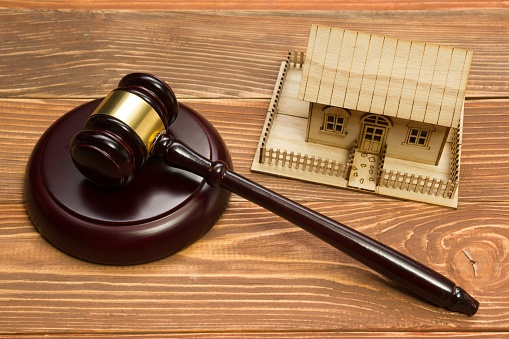Scura, Wigfield, Heyer, Stevens & Cammarota Blog
- Blog
When Can You File Emergency Bankruptcy in New Jersey?
There is a pile of envelops, unopened, piling like a mountain outside your door – so dense and heavy you cannot escape your home. The statements from the bank reveal your accounts are empty. You have no lines of open credit left. The accumulating unpaid dues are too much. Your credit score is in the gutter. Bankruptcy is your best option right now, and you need it now.
Bankruptcy always feels like an emergency. Financial difficulties are urgent matters that drag us into the muck. Debts and unpaid bills tether us to weights that plunge us into a financial oblivion from which there seems to be no escape. Or, at least, that is how it appears. No situation is ever as hopeless as it appears when you are experiencing it. Your problems have solutions.
Emergency bankruptcy is one such solution. However, what differentiates an "emergency bankruptcy" from an ordinary bankruptcy? As it turns out, very little.
What is an “Emergency Bankruptcy”?
It is important to understand what an “emergency bankruptcy” means to you, the person filing it. While it might seem like there is some urgent, rushed process, like doctors rushing a crash victim through the ER, the reality is that an “emergency bankruptcy” is no different than an ordinary one.
To perform an “emergency bankruptcy,” an individual would need to just fill out the initial petition page for bankruptcy. That can be done at any time. Other information that creditors require, such as income, can be provided later.
Before filing this paperwork, however, the debtor will be required to have taken the Creditor Counseling Course and been informed about the bankruptcy process. This might require meeting with an attorney. However, once that information is relayed to the debtor, they can file the petition whenever they need to.
What filing out the initial petition page will then do is put the automatic stay into effect. The automatic stay halts creditors from coming to collect from debtors, thus in effect providing the initial phases of bankruptcy relief. This means that debtors, for the time being, cannot come to collect money or collateral from you, the debtor.
Why Would Someone Want This?

While the prospect of immediate help in the face of debt collection is nice, there are reasons you might not simply want the bankruptcy process sped up. You might need it. As mentioned earlier, when you file the initial petition for bankruptcy, the automatic stay is put into effect. This is incredibly useful if you are dealing with an urgent crisis, such as foreclosure.
When a debtor can no longer pay the secured loan for their mortgage or some other debt that uses the house as collateral, they foreclose. If you fail to pay off your debt for an extended period of time, your house can be sold off in a Sheriff Sale in order to make up the sum of money owed to creditors. However, there is a period of time in which homeowners can renegotiate their debts. During this time, one can file for bankruptcy to permanently stave off foreclosure.
As it pertains to the continuation of foreclosure actions against real property of the debtor, filing for bankruptcy ceases “any act to obtain possession of property of the estate or of property from the estate or to exercise control over property of the estate.” The ‘estate’ refers to all property interests of the debtor, as set forth in Section 541 of the Bankruptcy Code. This includes a person’s house.
The Urgency in Emergency

Therefore, a foreclosure action, regardless of what stage it is in, cannot continue after you file a bankruptcy petition. Should a creditor attempt to sell the house, they will be acting in violation of the automatic stay, thus breaking the law and committing a crime.
However, there is a finite amount of time in which one can file bankruptcy to stave off a Sheriff Sale. According to the most recent iteration of the laws surrounding foreclosure, a sheriff, after receiving the court-issued Writ to sell a foreclosed property, would have 120 days to sell the property. The owner remains in possession of the home until the sheriff sells the home to a new owner. Once the property has been sold, ownership has been terminated. Once that happens, it will be too late for you to save your home with an emergency bankruptcy.
Do you suspect that you might need bankruptcy right now to save your home? If so, you need someone to help explain to you the rules and regulations of bankruptcy, a problem solver you can trust with your bankruptcy concerns. That is where we come in. The attorneys at Scura, Wigfield, Heyer, Stevens & Cammarota LLP can help. Please call our offices to schedule a free consultation and hear your options.
Share Article
Need Help? Contact Us Today!





Lists by Topic
- Bankruptcy (320)
- Personal Injury (95)
- Chapter 13 (52)
- Chapter 7 (50)
- Debt Management (50)
- Foreclosure (47)
- Accident (32)
- Car Accident (26)
- Chapter 11 (24)
- Business Bankruptcy (19)
- Credit (18)
- Insurance Claims (17)
- Business Law (12)
- Litigation (12)
- Employment Law (11)
- Probate and Estate Law (11)
- Damages (10)
- Medical (10)
- Product Liability (10)
- Workers Compensation (10)
- Attorney (9)
- Consumer Bankruptcy (9)
- Commercial & Residential Real Estate (6)
- Slip and Fall (6)
- Contracts (5)
- Premises Liability (5)
- Repossession (5)
- wrongful death (5)
- Video | Bankruptcy (4)
- Bankruptcy Cost (3)
- Corporate Litigation (3)
- Trial Law (2)
- student loans (2)
- tax (2)
- Attorney Fees (1)
- COVID-19 (1)
- Certified Civil Trial (1)
- Dog Bites (1)
- News (1)
- Relocation Assistance (1)

